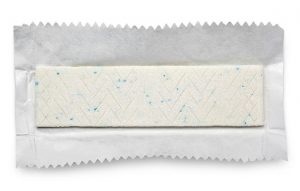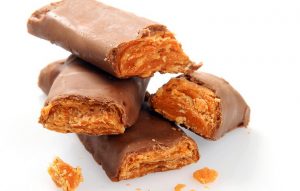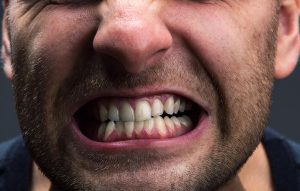23 / 05 / 2023
Running The Risk Of Dental Decay
It might be obvious to your dentist that you’re a runner from the moment you slide into the chair. Those trainers and the Garmin are dead giveaways.
But if it’s not at first glance, the dentist might be able to tell as soon as you open your mouth.
“Running can be a really tough sport for your oral health,” says Elizabeth Turner, D.M.D., a dentist in Minneapolis who trains with the Twin Cities Track Club. In fact, a small study of triathletes published in The Scandinavian Journal of Medicine & Science in Sports found higher rates of erosion and cavities with heavier endurance training.
Here’s what dentists might be seeing on runners’ teeth—and what those professionals wish runners would do to take care of them.

1. Overdoing it on sugar in the name of fuelling.
The gels, chews, and sports drinks that fuel your workout also feed bacteria that occur naturally in your mouth, says Jeremy Hoffman, D.D.S., a dentist and runner who works at two practices in Wisconsin (one in Weston and one, appropriately enough, in Marathon City). As these bugs dine, they produce an acid that eats away at the protective enamel covering your teeth.
To your dentist, this decay looks like white, chalky lines, he says. If you constantly swill sports drinks, it might appear at the base of your teeth where they meet the gums. Or, it might show up where liquid splashes over your front teeth, otherwise an uncommon area for cavities, says Bridget Lyons, D.M.D., an Atlanta-based dentist who competed in the 2016 U.S. Olympic Marathon Trials. Turner had an ultrarunner patient who put energy blocks in her cheek and let them dissolve during training and races; she arrived for her appointment with multiple small cavities between her teeth.
The fix: Regardless of your sugar delivery method, you can protect your teeth by swishing your mouth out with water immediately after you ingest it, says Julia Burchett, D.D.S., a dentist and marathoner in Eldersburg, Maryland. A healthy diet and plenty of non-sugary beverages during the rest of your day can also give your mouth a respite, reducing your cavity risk, Hoffman says.
If you’re cavity-prone, consider using gels with a thinner consistency that don’t stick to your teeth, he says. And seek out flavours without citric or tartaric acid—these compounds, which give sour or tart foods their flavour, can further erode your enamel with frequent or extended use.

2. Forgetting what it means that you’re a mouth breather.
Less spit means more cavities, Hoffman says, because saliva washes away debris and also neutralizes acids from food and bacteria.
During high-intensity training, the composition and consistency of your saliva changes. “Instead of being more fluid and lubricating for your mouth, it’s more sticky and mucous-like,” Turner says. In this state, it can trap decay-causing sugars and acids instead of rinsing them away.
The fix: Again, drinking water—or just rinsing with it—can rehydrate your whole body and restore your balance. Chewing sugar-free gum sweetened with xylitol, a naturally occurring sugar alcohol, can also help, Turner says. While she chews it on the run, you don’t have to; four to five pieces anytime throughout the day can prevent plaque from building up on your teeth, she says.
3. Breaking the work you’ve already had done.
Sticky chews and dense protein bars can damage crowns and fillings. After all, the cement that holds these structures in place is weaker than your natural tooth and bone, Hoffman says. That means it’s far easier for gooey or hard foods to compromise them.
The fix: If you have had extensive dental work, exercise extra caution when chewing on sticky or crunchy foods, Lyons recommends. Or experiment with real foods to fuel your workouts, such as bananas or peanut butter energy bites

4. Using your teeth to open up packets.
This one is self-explanatory, and yes, Lyons has seen patients chip their teeth in this way.
The fix: Just don’t tempt fate, regardless of your dental history. You’re asking for trouble.

5. Grinding at night and during workouts.
Type-A runners often clench their jaws or grind their teeth, especially at night or during tough speed sessions. While some companies sell athletic mouth guards, Burchett says she’s never seen anyone wear one to the track.
The fix: “One thing that is helpful is to concentrate on relaxing your face, relaxing your shoulders, relaxing your arms so you’re not so tense,” Lyons says. “If you can get back to that relaxed place in the workout, then I think that helps your teeth and also helps you run faster.”
If you do grind at night—symptoms include pain and stiffness when you wake up and flattened, loose teeth—talk to your dentist. Wearing a night guard can help you sleep better, always an advantage for runners. You’ll wake up refreshed and with less wear and tear on your molars and canines, Turner says.







